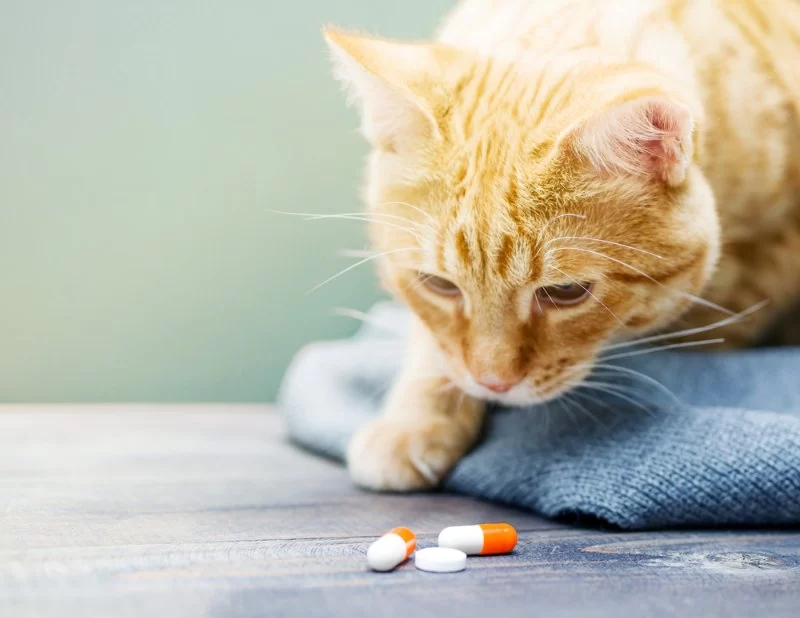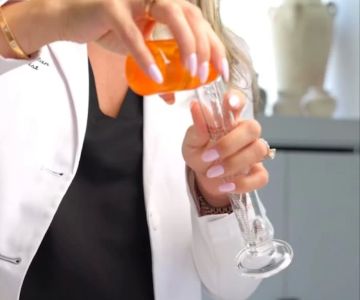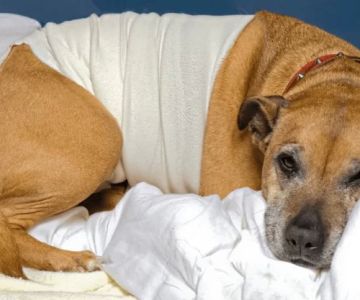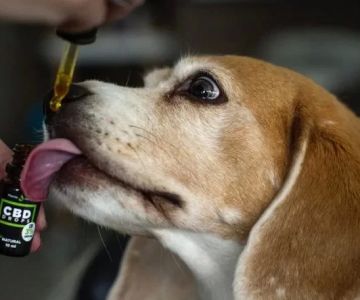Most Common Household Toxins That Could Harm Your Pet Every Owner Should Know
1. Introduction: The Hidden Dangers Lurking in Your Home
As a pet owner, you want to ensure your furry friend stays safe and healthy. However, many household items that seem harmless to us can be toxic to pets. Whether it's the cleaning products under your sink, foods left out on the counter, or plants decorating your living space, these everyday items could pose serious risks. In this article, we will explore the most common household toxins that could harm your pet and provide practical tips to protect them.
2. Toxic Foods: What to Keep Away from Your Pet’s Reach
We all love to share a snack with our pets, but some human foods are incredibly dangerous for them. Here are some common foods that can cause severe harm if ingested by pets:
2.1 Chocolate
Chocolate contains theobromine, a substance that is highly toxic to dogs, cats, and other pets. Even small amounts of chocolate can lead to vomiting, diarrhea, seizures, and in severe cases, death. Dark chocolate and baking chocolate are especially harmful, so always keep them out of reach.
2.2 Grapes and Raisins
While grapes and raisins are healthy for humans, they can cause kidney failure in dogs. The exact toxin is still unknown, but even a small amount can lead to vomiting, lethargy, and abdominal pain. It's best to avoid these fruits completely around your pets.
2.3 Onions and Garlic
Onions and garlic contain compounds that can damage your pet’s red blood cells, leading to anemia. While small amounts may not cause immediate harm, prolonged exposure or large quantities can be dangerous. Ensure that your pet never has access to food seasoned with these ingredients.
3. Household Cleaners and Chemicals
Many cleaning products contain toxic chemicals that are harmful to pets if ingested or even if inhaled. Here are some common cleaners to keep away from your pets:
3.1 Bleach and Ammonia
These harsh chemicals are found in many household cleaners, and they can cause severe irritation to your pet’s respiratory system, digestive tract, and skin. Ingesting bleach can lead to nausea, vomiting, and in extreme cases, burns in the mouth and esophagus.
3.2 Antifreeze
Antifreeze is commonly used in cars, but it is also highly toxic to pets, even in small amounts. The sweet taste can attract pets, and ingestion can lead to kidney failure and death. Always clean up spills immediately and store antifreeze safely out of reach.
3.3 Pesticides
Pesticides and insecticides can also be hazardous to pets. These chemicals are designed to kill pests, but they can also poison animals. Keep pesticides in secure containers and use them in areas where your pet cannot access them.
4. Household Plants: Beautiful, But Dangerous
Many houseplants are toxic to pets. Some can cause mild stomach issues, while others can be life-threatening. If you have pets and enjoy decorating with plants, it’s important to know which ones to avoid:
4.1 Oleander
Oleander is a beautiful but highly toxic plant. Ingesting even a small part of it can cause severe symptoms, including vomiting, diarrhea, and heart problems. Always keep this plant away from your pets, especially if you have curious ones who love to chew on plants.
4.2 Azaleas
Azaleas are common in many households, but they contain toxins that can cause vomiting, diarrhea, and even heart failure if ingested by pets. If your pet is prone to nibbling on plants, it’s best to avoid keeping azaleas indoors or in areas they can reach.
4.3 Sago Palm
The sago palm is another popular houseplant that is extremely toxic to pets, especially dogs. The seeds contain a toxin called cycasin, which can cause liver failure and death if ingested. If you have a sago palm in your home, keep it well out of reach.
5. Medications and Over-the-Counter Drugs
Medications that are safe for humans can be deadly for pets. Whether it's prescription drugs, over-the-counter pain relievers, or vitamins, it's important to keep these out of your pet’s reach:
5.1 Pain Relievers (Acetaminophen, Ibuprofen)
Pain relievers like acetaminophen and ibuprofen are common in most homes but can cause liver damage and kidney failure in pets. Even a small dose can be harmful, so never leave these medications where pets can access them.
5.2 Antidepressants and Antianxiety Medications
Antidepressants and antianxiety medications are toxic to pets if ingested. Symptoms include lethargy, tremors, and in severe cases, seizures. Keep these medications stored safely and never give them to your pets.
6. What to Do if Your Pet Is Exposed to a Toxin
Despite your best efforts, accidents happen. If you suspect your pet has ingested a toxic substance, don’t wait for symptoms to appear. Contact your veterinarian immediately. Many toxins can be treated if addressed quickly, but time is of the essence.
7. Conclusion: Preventing Toxin Exposure in Pets
As a pet owner, it’s crucial to be aware of the common household toxins that can harm your pet. By understanding the risks and taking preventive measures, you can protect your furry friend from harm. Ensure that toxic substances are stored safely, avoid giving your pets harmful foods, and monitor their access to plants and chemicals in your home.
For more information or to find the best products for your pet’s health and safety, visit Hidden Brook Veterinary for expert advice and product recommendations.












